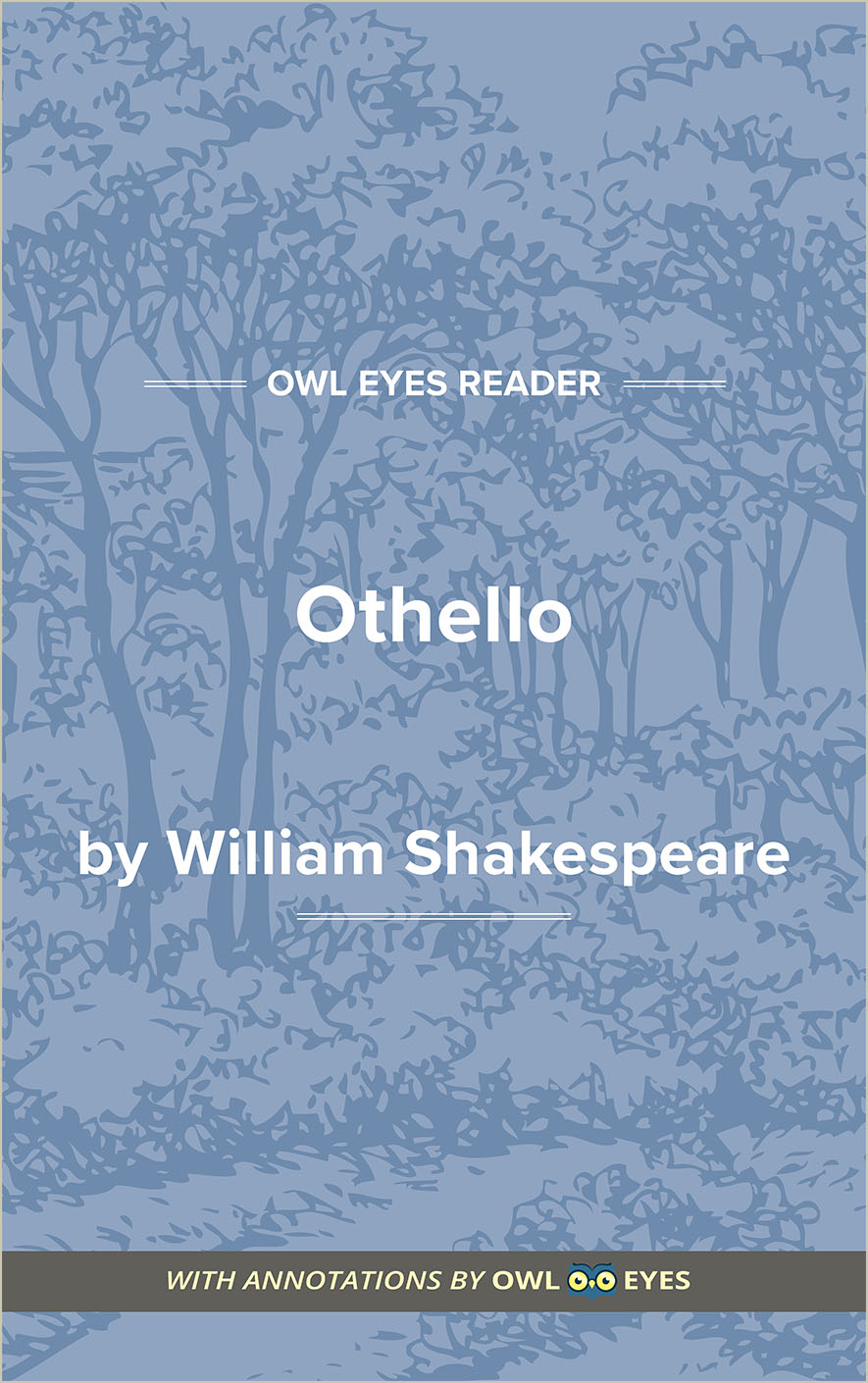Analysis Pages
Facts in Othello
Facts Examples in Othello:
Act I - Scene I
🔒" wife..." See in text (Act I - Scene I)
Act I - Scene III
🔒"teach me tyranny, To hang clogs on them...." See in text (Act I - Scene III)
"Of thirty sail; and now they do restem Their backward course, bearing with frank appearance Their purposes toward Cyprus...." See in text (Act I - Scene III)
Act II - Scene III
🔒"'Zounds!..." See in text (Act II - Scene III)
Act III - Scene I
🔒"Why, masters, have your instruments been in Naples, that they speak i' the nose thus?..." See in text (Act III - Scene I)
Act III - Scene III
🔒"Avaunt! be gone! Thou hast set me on the rack: I swear 'tis better to be much abused(375) Than but to know't a little...." See in text (Act III - Scene III)
"I have a pain upon my forehead here...." See in text (Act III - Scene III)
"green-eyed monster..." See in text (Act III - Scene III)

